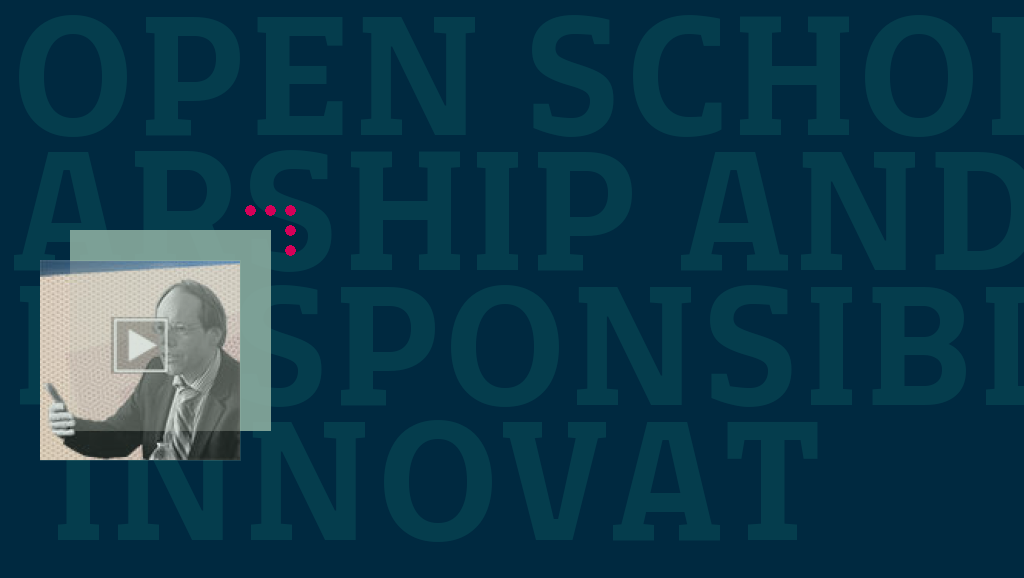On December 14th 2017 René von Schomberg visited the Foundation for a dialogue entitled Open Scholarship and Responsible Innovation.
Von Schomberg opened the dialogue by asking the question of which were the right impacts that innovation should work towards and how could we agree on this.
In his introduction to the dialogue von Schomberg argues that we must look to the machinery of science for the answer, stating that this requires a much more open and collaborative science.
He believes that there needs to be more of a balance between private science and public funded and open science, and that the current imbalance has led to an innovation of innovation that has led to mass patenting and publication as a scientific policy, making innovation more difficult and science less productive.
He offers the example of the iGem competition as an open research model before describing real time science, giving examples from recent medical emergencies and approaches that have sped up the research processes and improved grave situations, and a bio-medical research model currently operating on a global scale.
This first part of the dialogue produced a great deal of discussion and comments from the floor, including questions about data exploitation, privacy and policy lag amongst others.
In the second half of the dialogue von Schomberg opened a discussion into the relationship between open science and responsible innovation, arguing that open science is more responsive and that science policy and approaches within the EU should be more critically approached and therefore seen as more controversial.
He argues for greater communication and networking within Europe, the need to build coalitions with diverse sets of stakeholders as well as more openness. He argues that we are in a paradigm within which the state takes care of the risk of innovation but not the benefits, leading to a belief that innovation is a good in itself and that innovation processes are non-steerable. He describes how this paradigm is challenged by responsible innovation through the introduction of a paradigm that is more issue rather than technology based, leading to a more flexible and societally driven approach.
He argues that we must move away from a perception of ethics as only being constraint, but towards an ethics of design. This involves the design of technology according to normative principles that are shared, offering examples of how the design of such systems changes output and impacts in both IT and precision agriculture.
This session also produced animated discussion from the floor, including questions surrounding possible responsible innovation approaches and the possible replication of open software approaches.
On behalf of the Bassetti Foundation and all of those present we would like to thank Dr von Schomberg for his passionate and stimulating presentation and participation in this dialogue.
Some photos:
















